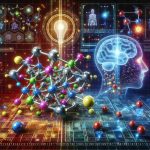Modern artificial intelligence (AI) is fundamentally based on artificial neural networks, which draw inspiration from human neural structures. These networks consist of interconnected nodes that simulate the complex communication between human neurons, a discovery made by the renowned scientist Santiago Ramón y Cajal.
Artificial neurons are designed using numerous parameters that the network refines through exposure to vast datasets. These parameters, while essential for the network’s function, lack any intuitive or verbal explanation. For instance, when an object detection algorithm identifies a chair in an image, it cannot articulate its reasoning in simple terms—such as describing it as a four-legged fixture for sitting. This phenomenon leads to the classification of AI systems as ‘black boxes,’ where their internal workings remain undisclosed.
Though researchers are making strides towards enhancing AI explainability, challenges persist. This black box characteristic poses significant hurdles in the development of trustworthy AI. Yet, a parallel can be drawn with everyday technologies like cars. Most drivers trust their vehicles to transport them safely, despite not comprehending the intricate mechanics behind engines or safety systems.
The path forward for AI lies in establishing robust human oversight and adhering to stringent testing and regulatory standards. By emphasizing ethical and technical considerations, we can cultivate a more dependable AI, even if the complexities of its operation remain somewhat enigmatic.
Understanding the Enigma of Artificial Intelligence: New Perspectives and Insights
Artificial intelligence (AI) has rapidly evolved over the past few decades, igniting debates about its implications for society, technology, and ethics. While previous discussions often center around the mechanics of AI and the challenges it faces, several other crucial aspects warrant attention.
Key Questions Surrounding AI
1. What are the ethical implications of AI decision-making?
AI systems are increasingly being implemented in critical areas such as healthcare, criminal justice, and finance. One emerging concern is how these systems could perpetuate or even exacerbate existing biases present in training data. It’s crucial to address potential disparities in AI outcomes to use technology responsibly.
2. How can we ensure AI systems are aligned with human values?
Ensuring that AI models reflect the values and ethics of the societies they serve is essential. The alignment problem highlights the need for incorporating diverse perspectives during the development of AI systems.
3. What role does human oversight play in AI applications?
Human involvement is critical, particularly in high-stakes scenarios. Establishing processes for human intervention can enhance accountability and mitigate risks associated with AI decision-making.
Key Challenges and Controversies
AI brings forth several challenges that necessitate thorough examination. Among these are:
– Data Privacy: The use of vast datasets poses privacy concerns, especially when personal information is involved. Striking a balance between data utility and privacy protection remains a challenge.
– Autonomy vs. Control: As AI systems become more autonomous, there are growing concerns about losing control over these technologies. This raises questions about responsibility and accountability when AI systems malfunction or produce harmful outcomes.
– Job Displacement: The automation potential of AI brings anxiety regarding unemployment in various sectors. While some jobs may vanish, AI can create new roles and opportunities, leading to a complex labor landscape.
Advantages and Disadvantages of AI
Advantages:
– Efficiency and Speed: AI can process vast amounts of data far quicker than human capabilities, leading to enhanced productivity and efficiency in various fields, including medicine, finance, and manufacturing.
– 24/7 Availability: Unlike humans, AI systems can operate continuously without fatigue, making them ideal for tasks that require constant oversight or immediate response.
– Data Analysis: AI excels at identifying patterns and correlations in big data, enabling businesses and organizations to make data-driven decisions with improved accuracy.
Disadvantages:
– Bias and Discrimination: AI systems trained on biased data can perpetuate stereotypes and result in unfair treatment of certain demographic groups.
– Dependence on Technology: Increased reliance on AI could lead to a decrease in human skills and critical thinking, creating potential vulnerabilities during system failures.
– Ethical Concerns: The development and deployment of AI systems raise deep ethical questions, particularly regarding privacy, consent, and agency.
Conclusion
Understanding the enigma of artificial intelligence requires a multifaceted approach that considers not only its technical intricacies but also its ethical, social, and economic implications. By addressing these pressing questions and challenges, society can harness the transformative power of AI while safeguarding human values.
For further reading on AI and its implications, visit AAAI.






















